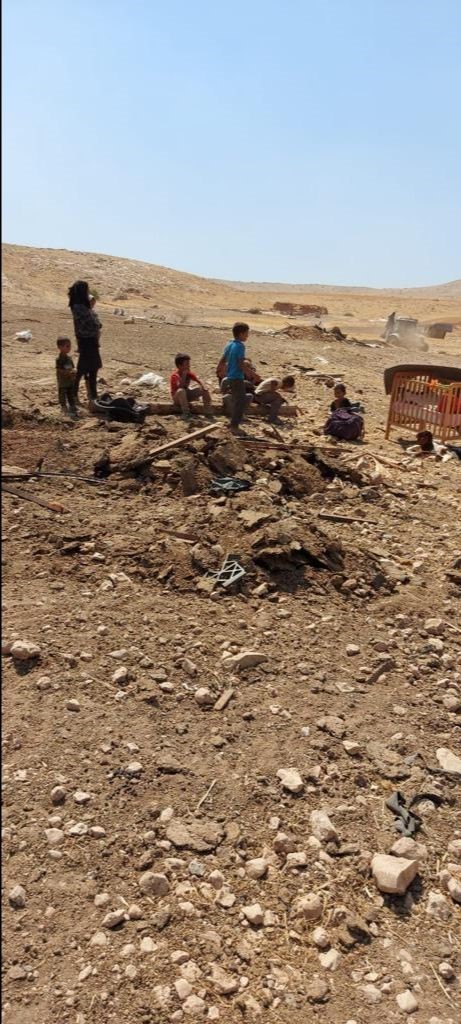B’Tselem: Court sanctioned war crime committed in broad daylight
Yesterday, Israel committed an attempted forcible transfer – a war crime – against residents of Humsah. In a break from the previous five demolitions in the community within less than a year, yesterday, Israeli soldiers and Civil Administration staff removed the contents of some residents’ homes and transported the items to an area located near ‘Ein Shibli, where Israel has been trying to forcibly relocate residents. Israel misrepresented these actions as being part of dialog and consent, proving, if anyone still entertained any doubts, it is intent on expelling these residents from their homes permanently.
The military’s response, as it appeared in the media, highlighted the fact that the attempted expulsion was carried out with the approval of Israel’s High Court of Justice. Indeed, when the ICC looks into forcible transfers as part of its investigation of Israel, it will have to assess the responsibility of justices as well as ministers and top military commanders.
On Wednesday, at around 8:00 A.M., soldiers and Civil Administration staff arrived at the community of Khirbet Humsah in the northern Jordan Valley. The forces declared the area a closed military zone and denied journalists, human rights activists and diplomats access. According to initial data collected by B’Tselem, the forces dismantled nine tents and four huts used as residences, as well as 17 agricultural structures, all together belonging to nine families with a total of 61 members, including 29 minors. The forces also destroyed four water tanks, water lines, fencing and farming equipment. The residents’ belongings were loaded onto trucks that transported them to the ‘Ein Shibli community, which lies west of Khirbet Humsah. Community members fled to the mountains with their flocks, leaving the buses brought in to forcibly relocate them to ‘Ein Shibli empty.
Click here for a video of the home demolition at Humsah.
(Photo: The demolition in Humsah. Credit: Harbi Suliman Abu al-Kabash, B’Tselem)

